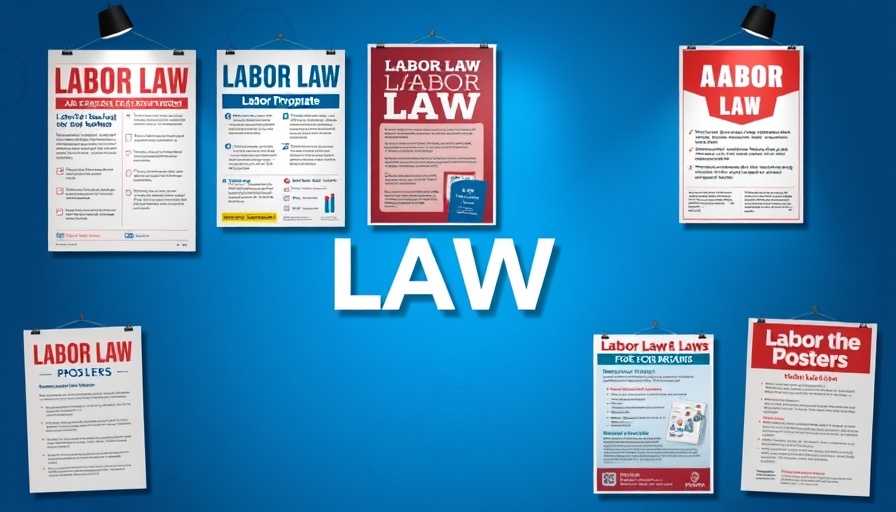
Understanding New Labor Law Posters: Connecticut, Missouri, and More
As businesses navigate the rapidly evolving landscape of labor laws, compliance becomes a vital priority. This month, we spotlight significant updates from Connecticut and Missouri, addressing essential changes that employers and HR professionals must know.
New Discrimination Guidelines in Connecticut
Connecticut has revamped its Discrimination Poster, making it easier for businesses to understand their obligations under state law. Previously requiring three separate lists, the poster now consolidates the information, outlining that discrimination based on age, race, gender identity, disability, and several other factors is strictly prohibited in employment, housing, and public accommodations. Notably, this change aims to foster a more inclusive work environment while keeping employers accountable for compliance.
Missouri's Earned Paid Sick Leave Mandate
Meanwhile, Missouri enters the spotlight with Proposition A, which mandates employers provide earned paid sick leave. With a recent court ruling upholding this law, businesses must implement policies allowing employees to accrue 1 hour of paid sick leave for every 30 hours worked. Companies with 15 or more employees are required to offer up to 56 hours annually. This reflects a growing trend toward employee-centric policies that bolster workplace wellbeing and protect rights.
Why Compliance Matters: The Bigger Picture
The importance of staying informed on such policy updates cannot be overstated. HR compliance officers, legal counsel, and payroll managers must ensure that employee handbooks and practices align with current labor regulations. Failing to do so not only exposes organizations to penalties but also undermines workplace morale and productivity. Additionally, navigating these changes helps mitigate hiring bias and improve overall workplace culture.
Take Action: Update Your Policies
For HR professionals and compliance officers, the call to action is clear: review and update all relevant labor law posters and policies in your organizations. By doing so, you cultivate a transparent workplace that values employee rights while adhering to state and federal regulations.
 Add Row
Add Row  Add
Add 




 Add Row
Add Row  Add
Add 

Write A Comment